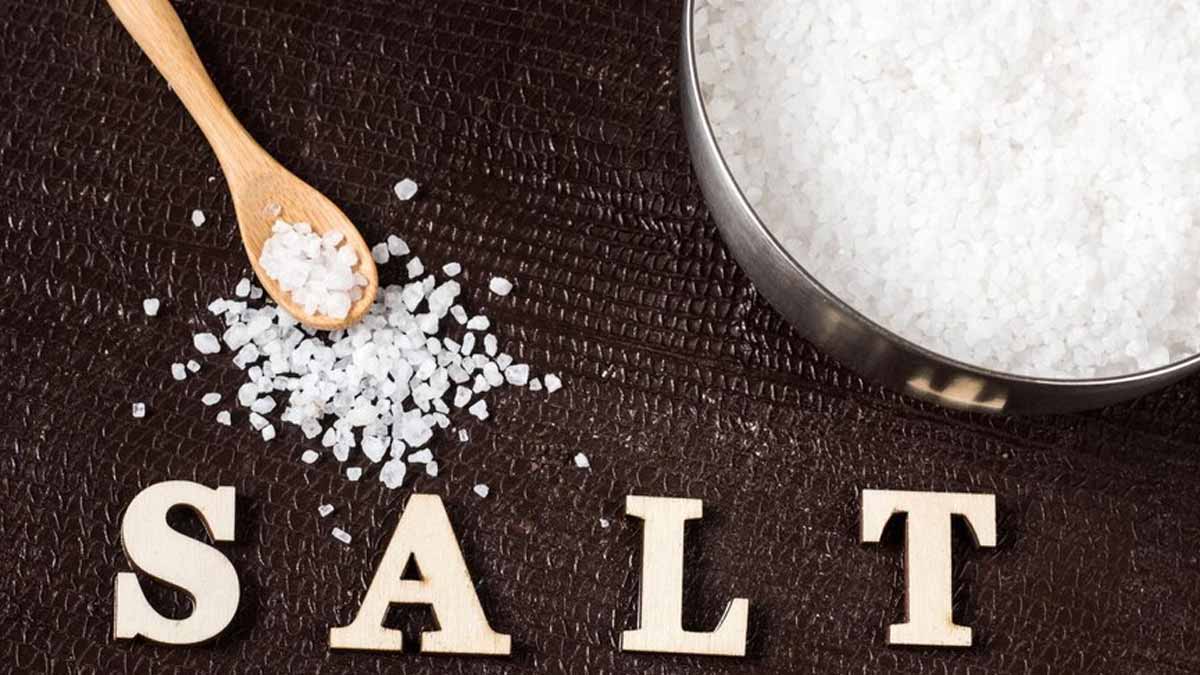
Sodium is important for your body in carrying out various bodily functions, such as maintaining fluid balance, transmitting nerve impulses, and muscle contraction. However, consuming too much sodium can also result in various health complications like heart disease, high blood pressure, and kidney diseases. It becomes important to take care of our diet and avoid overindulgence for the smooth functioning of the body. We spoke to our expert Vedika Premani, clinical dietician, Sir HN Reliance Foundation Hospital, Mumbai, who listed the health benefits of consuming less sodium.
Table of Content:-

According to the World Health Organization (WHO), it is recommended that adults consume less than 2000 mg/day of sodium, which is equivalent to less than 5 g/day of salt. For children aged 2–15 years, WHO suggests adjusting the adult dosage downward according to their energy needs. However, it's important to note that this recommendation for children does not cover the exclusive breastfeeding period (0–6 months) or complementary feeding while still breastfeeding (6–24 months).
Health Benefits Of Consuming Less Sodium

Heart Health
According to a 2024 study, elevated sodium consumption correlates with a higher likelihood of developing heart failure and hypertension. By consuming less sodium, individuals can significantly lower their blood pressure, thereby reducing the strain on the heart and decreasing the risk of cardiovascular complications.
Kidney Function
"Excessive sodium consumption is correlated with fluid retention in the body, resulting in fluid levels rising excessively. This excessive volume leads to increased pressure in the blood, potentially exacerbating kidney damage that is already present. Therefore, limiting sodium consumption relieves the burden on the kidneys, promoting optimal renal health", added Premani.
According to a 2009 study, when sodium and fluid levels rise excessively, it leads to increased pressure in the blood, potentially exacerbating kidney damage that is already present.
Also Read: WHO Warns Against Excess Salt Consumption: Here’s How To Reduce Salt Intake & Its Benefits
Fluid Balance
Sodium plays an important role in maintaining fluid balance within the body. However, excessive sodium intake can disrupt this delicate equilibrium, leading to fluid retention and bloating. You can mitigate these effects by moderating sodium intake, promoting better hydration and reducing discomfort.

Bone Health
Avoiding a high-sodium diet helps preserve bone density and minimises the risk of fractures and skeletal disorders. According to the Journal of Clinical Endocrinology and Metabolism, sodium promotes calcium excretion, and increased calcium excretion is linked to reduced Bone Mineral Density (BMD), which is indicative of the risk of osteoporotic fractures.
Weight Management
People who are aiming to lose weight should reduce the consumption level of sodium in their bodies. This is because sodium-laden processed foods are often high in calories and low in nutritional value, contributing to weight gain and obesity. By opting for low-sodium alternatives and emphasising whole, nutrient-dense foods, you can better manage your weight and support overall health and well-being.
Longevity
"A diet low in sodium has been linked to a reduced risk of chronic diseases, including heart disease, stroke, and certain cancers. You can enhance their longevity and enjoy a higher quality of life well into old age by prioritising healthful eating habits and minimising sodium intake, individuals". added Premani.
According to a 2015 analysis of 76 studies involving more than six lakh individuals, it was found that with every five-gram rise in daily dietary salt intake, primarily from high-salt processed foods, the likelihood of developing stomach cancer rose by 12%.
Also Read: Salt And Sodium: Why You Need It Versus When To Avoid
How To Reduce Sodium Intake?
While the benefits of consuming less sodium are undeniable, making dietary changes can be challenging, especially in a culture inundated with salty snacks and processed foods. Here are some tips to follow to reduce sodium intake, as listed by the expert:
Avoid High Processed Food
Limit the consumption of highly processed food items. Opt for fresh fruits, vegetables, gravies and pulses instead of canned ones.
Read Labels
You should be careful about reading food labels and choosing products with lower sodium content whenever possible. Opt for fresh or minimally processed foods over heavily processed alternatives.
Cook at Home
You can even prepare meals from scratch using whole ingredients to have better control over sodium levels. Experiment with herbs, spices, and citrus juices to enhance flavour without relying on salt.
Limit Salt Usage
Use salt sparingly during cooking and at the table. You can explore alternative seasonings, such as garlic, onion, ginger, and vinegar to add depth and complexity to dishes.
Choose Low-Sodium Options
Seek out low-sodium or sodium-free versions of condiments, sauces, and canned goods. Rinse canned vegetables and beans before using them to reduce sodium content.
[Disclaimer: This article contains information provided by an expert and is for informational purposes only. Hence, we advise you to consult your expert if you are dealing with any health issues to get the necessary treatment.]
Also watch this video
How we keep this article up to date:
We work with experts and keep a close eye on the latest in health and wellness. Whenever there is a new research or helpful information, we update our articles with accurate and useful advice.
Current Version